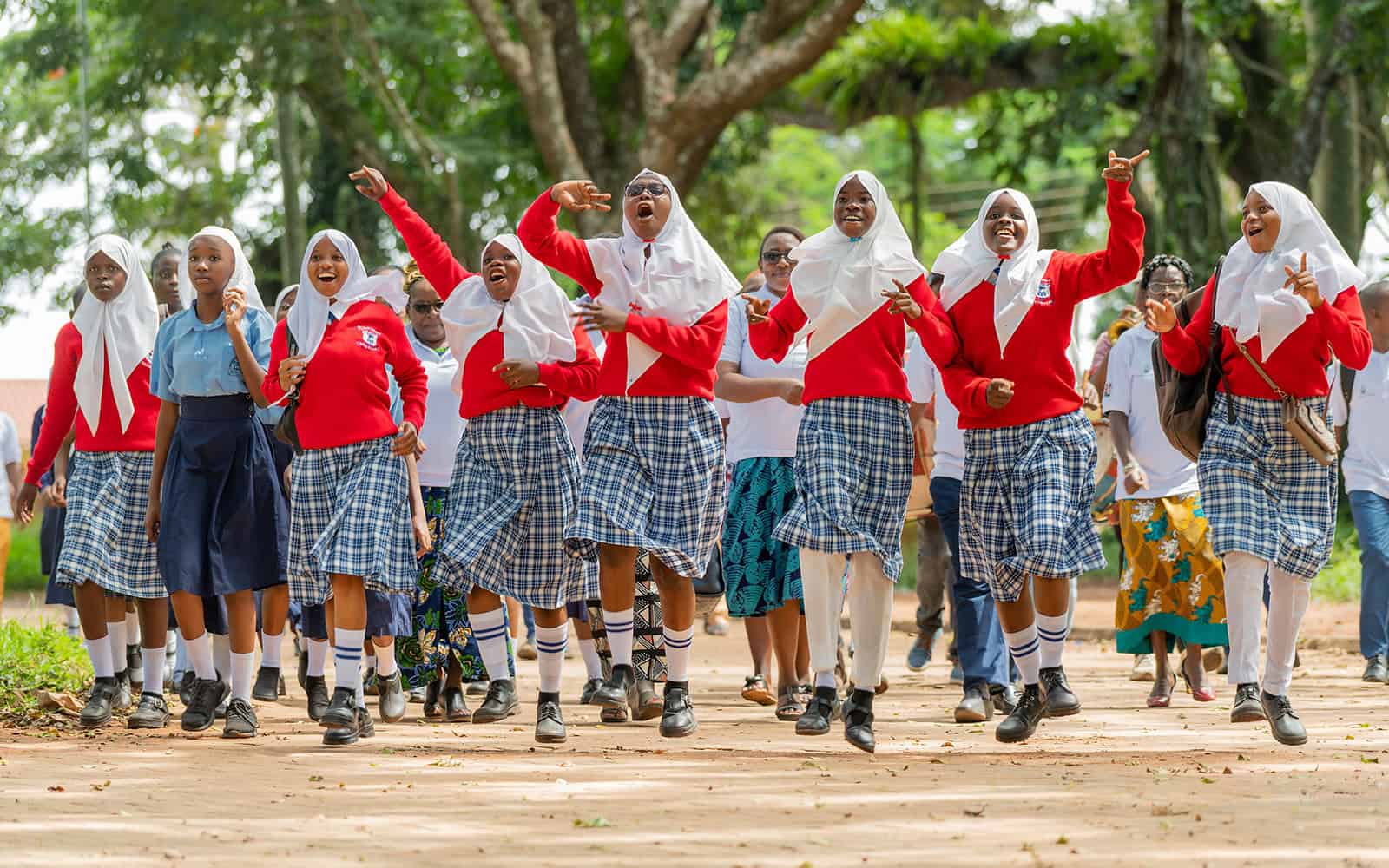We are excited to work with a new cohort of Global Research Partners appointed through the Schools2030 Global Call for Research 2023. Their research projects will help build understanding on how we should consider teacher agency and its relation to education innovation in different contexts, as well as support our learning on how quality learning environments impact students’ holistic learning outcomes.
For Schools2030, enhancing teachers’ capacity to measure, design and implement education innovations in the classroom, as well as to engage in education sector dialogue are key pathways to achieving SDG4. Given the complex and varied education systems in which Schools2030 is operating, there is a need to better understand what is meant by “teacher agency”, how this is valued and perceived in different contexts, and how teacher agency does (or does not) lead to improved classroom practice.
We also believe that quality learning environments that are inclusive of all learners no matter their ability level or background are more conducive to fostering holistic skills development. In its inception phase, Schools2030 developed tools and resources to support teachers to improve the quality of the learning environment. Nevertheless, there is a need to learn more about how these tools can be used to their greatest effect so that teachers have the agency to take up and embed evidence-based practices that support all children’s learning.
After a competitive process, six research consortia were selected to receive grants of up to $150,000 each to work alongside Schools2030 over the next 18-24 months. By working across all age cohorts and in diverse geographies, learnings from this research will be instrumental in helping us to conceptualise teacher agency, to understand how this interacts with educational innovation processes and ultimately to better support teachers to have agency in fostering quality learning environments that improve outcomes for all learners. We are proud to currently have research projects running in seven of the ten Schools2030 programme countries.
The selected partners and projects are:

This project led by the University of Glasgow and University of Dar es Salaam will provide evidence of how teacher agency and innovation are conceptualised, valued and mobilised (or hindered) in Tanzanian secondary education. The project objectives are to: (a) explore how stakeholders in Tanzania understand teacher agency and innovation, including their enablers and constraints and potential relationships; (b) investigate differences in perceptions, if any, between Tanzanian stakeholders involved in Schools2030 and those beyond; and (c) cultivate research-practice synergies for future change across all levels.

In this study, researchers at the University of Notre Dame and the Luigi Giussani Foundation will work with Schools2030 teachers to construct a definition of teacher agency. This teacher-constructed definition will then be used to choose and adapt an existing measure(s) of teacher agency. Finally, a survey will be conducted with primary teachers to (a) establish the psychometric properties of the adapted teacher agency measure, (b) understand the relationship between teacher agency, teacher well-being, and action in the school, and (c) explore the relationship between teacher agency and student learning and development.

This project led by Empirica will investigate the role of teacher agency in driving educational change in Kyrgyzstan, particularly within Schools2030. The study aims to address the challenges faced by human-centred design teams in implementing child-centred educational practices and understand how teacher agency influences the success of these initiatives. The study takes into account the historical influence of the centralised Soviet educational system and intends to inform future Schools2030 activities and educational reforms in Kyrgyzstan to enhance their relevance, effectiveness and impact.

This project led by TIDE Foundation together with University College London IOE – Faculty of Education and Society will explore the various elements of teacher agency, examining how teachers experience it and how it relates to their ability to innovate in the classroom in India. Through participatory methods, the team will investigate the systemic enablers and constraints that influence teacher agency and their capability to create holistic and inclusive learning environments.

ECD Measure will work with Schools2030 to investigate how engaging Kenyan pre-primary teachers in Mombasa with Brief Early Childhood Quality Inventory (BEQI) classroom observational and self-assessment data can improve quality classroom practices. The project will examine whether providing direct feedback to teachers and encouraging them to set goals based on that feedback can lead to improved teaching practices. The team will also explore how feedback and encouragement to improve affects teachers’ self-perceptions, and how this may be related to their teaching practices.

Sightsavers and the Kenya Institute of Special Education (KISE) will work together to explore how the Schools2030 inclusive learning environment tools and guidance, including the Basic Early Childhood Quality Inventory (BEQI) can be made more disability-inclusive: how disability inclusion can be better integrated in the tools, how they perform in real school settings, and how the tools support teachers in making disability-inclusive adaptations to learning environments and teaching practice. The research will explore the relationship with teacher agency in responding to disability-inclusion needs and assess what is needed for the broader adoption of the tools and guidelines in ECDE settings in Kenya.
Find out more about our research projects on the Schools2030 research webpage. You can keep up to date with Schools2030 news, including from our research portfolio, by signing up to our newsletter (click ‘Get Updates’ at the bottom right of the screen!).
